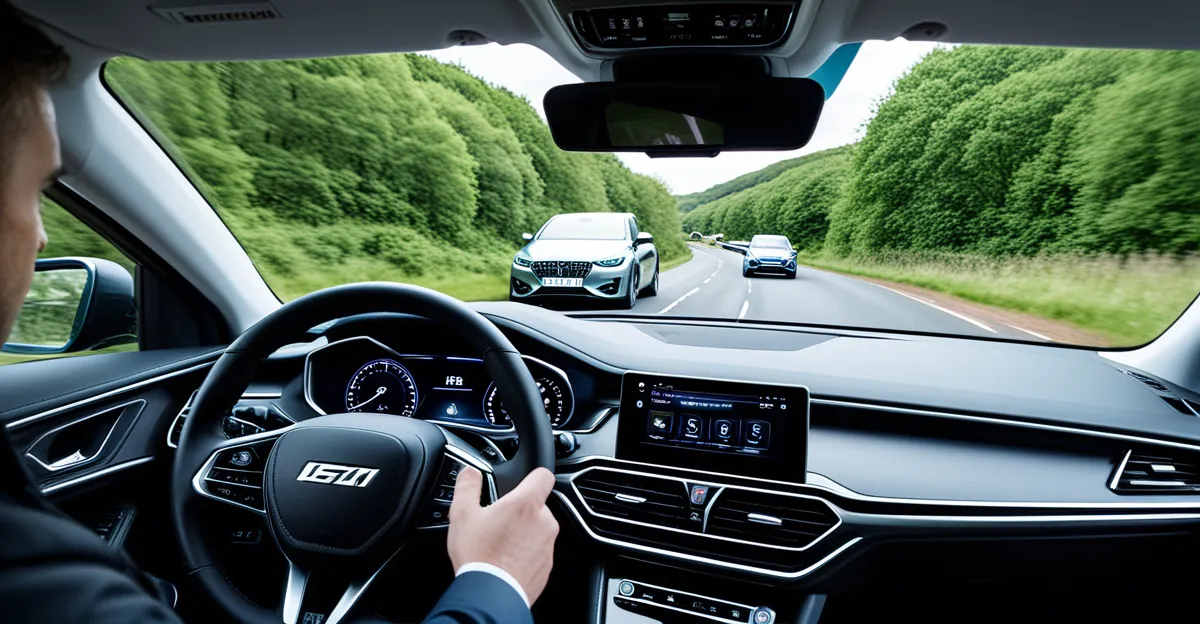Cybersecurity Strategies Employed by UK Automotive Companies
UK automotive cybersecurity relies heavily on multi-layered cybersecurity frameworks designed to protect vehicles throughout their lifecycle. These frameworks integrate various defense mechanisms, including intrusion detection systems, firewalls, and authentication protocols, forming a robust barrier against cyber threats targeting connected cars.
Another essential strategy involves the adoption of secure software and regular security updates. UK car manufacturers prioritize developing software with security built in from the ground up, applying strict coding standards to minimize vulnerabilities. Additionally, they implement continuous patch management cycles that address newly discovered threats promptly, ensuring that connected vehicles remain resilient against emerging attacks.
Topic to read : Will Electric Vehicles Dominate the Future of the UK Automotive Industry?
Data integrity and user privacy are central to these strategies. By employing advanced data encryption techniques and enforcing user privacy protection, automotive companies safeguard sensitive information transmitted within vehicle networks and between cars and external systems. Encryption methods such as AES and TLS help prevent unauthorized access and data breaches, maintaining driver trust and meeting regulatory expectations.
Together, these cybersecurity strategies form a comprehensive defense posture that UK manufacturers apply to effectively secure their connected vehicles, addressing both current vulnerabilities and preparing for future threats with adaptability and rigor.
In parallel : The Future of Electric Cars in the UK: What Are the Latest Developments?
Regulatory Standards and Government Guidelines
Understanding UK vehicle cybersecurity regulation is crucial for manufacturers aiming to meet evolving security demands. The UK government has established comprehensive compliance requirements that focus on protecting vehicles from cyber threats throughout their lifecycle. These regulations mandate adherence to strict security protocols, ensuring connected cars operate within a secure framework.
The UK’s approach aligns closely with international standards and best practices such as ISO/SAE 21434, which addresses cybersecurity risk management in road vehicles. By harmonizing local rules with global frameworks, UK automotive companies ensure interoperability and consistency in connected car security measures. This alignment helps manufacturers demonstrate due diligence in securing their products and facilitates smoother market access internationally.
Manufacturers must comply with Transport Security Requirements that specify technical and organizational measures, including risk assessment procedures, incident response planning, and continual security monitoring. Regular audits verify compliance, emphasizing the proactive management of vulnerabilities and swift mitigation of threats. These government guidelines reflect a commitment to robust cybersecurity governance, helping maintain consumer trust and safeguard critical infrastructure across the UK automotive sector.
Industry Collaboration and Partnerships
Collaboration and cooperation lie at the heart of effective automotive-industry collaboration to strengthen UK automotive cybersecurity. UK car manufacturers actively engage in partnerships with leading cybersecurity firms and technology providers. These tech partnerships enable access to cutting-edge threat intelligence and advanced security tools, fostering robust defenses against sophisticated cyber attacks targeting connected vehicles.
A critical aspect of this cooperation is participation in industry-wide information sharing initiatives. By exchanging real-time data on emerging threats and vulnerabilities with peer organizations, automotive companies gain a comprehensive understanding of the evolving risk landscape. This transparent communication enables faster identification and mitigation of cyber risks, amplifying the effectiveness of shared connected car security measures.
Moreover, UK automotive manufacturers collaborate in public-private cybersecurity alliances that bring together government agencies, industry stakeholders, and security experts. Such alliances form a collective defense network promoting best practices and coordinated response strategies. This collaborative ecosystem strengthens the overall resilience of UK automotive cybersecurity by pooling resources, expertise, and threat intelligence across multiple sectors.
Together, these collaborative approaches exemplify how active cybersecurity cooperation enhances the UK automotive sector’s ability to anticipate, prevent, and respond to cyber threats, safeguarding connected vehicles in a rapidly evolving digital environment.









